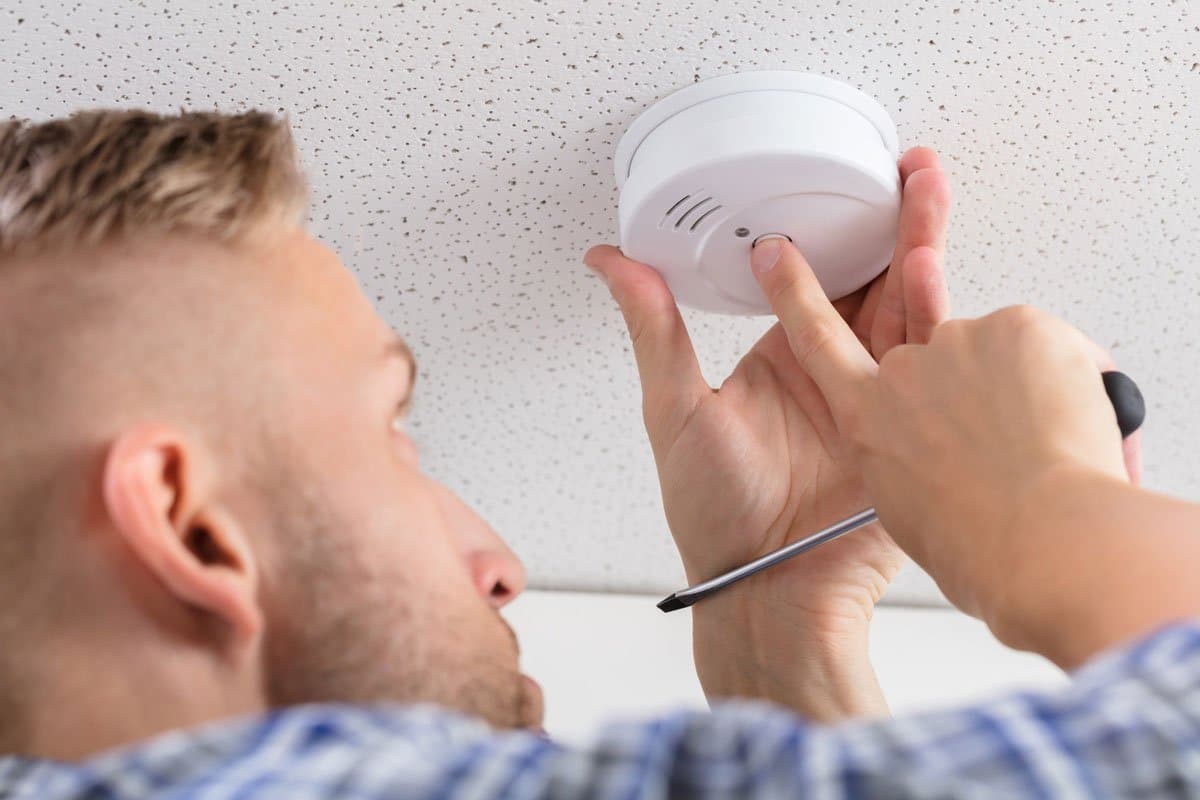
What does it mean when the lights in your home start to flicker?
While there are a few benign issues that could be at play, flickering lights are not to be treated lightly. In many cases, they’re a telltale sign of a much more serious electrical issue that requires immediate professional attention.
Today, we’re taking a look at the most common culprits behind this issue so you know what you’re working with and who to call for help.
Ready to learn more? Let’s get started.
What Causes Flickering Lights?
The occasional light flicker might be caused by a number of problems, some of which aren’t cause for extreme concern.
The top four minor complications that could cause them to behave this way include:
- A problem with your lightbulb (e.g. wrong bulb type for the dimmer, loose socket connection)
- A faulty light switch or fixture switch
- A loose connection between the light plug and outlet
In addition, if you have any appliances that require substantial current on startup, the resulting voltage drop can also cause your lights to briefly flicker on and off.
Inspecting your lights can often reveal if any of these issues are at play. Sometimes, you just need to screw the bulb in a little tighter or make sure light is plugged more firmly into the wall socket.
However, while these issues might be to blame on some accounts, they’re not typical. More often, flickering lights are a more serious symptom of a much deeper problem. Let’s take a look at five of the main ones.
1. An Overloaded Circuit
As mentioned, infrequent flickering that happens right when a major appliance starts up isn’t usually critical. This can happen in even the best-designed electrical systems, where larger loads have their own dedicated circuits. On the other hand, it’s worth checking into if the flickering is:
- Consistent
- Severe
- Persistent
In this case, the issue might be with the appliance, not your lights. For instance, if it’s experiencing bearing failure, the motor will strain to pull more current during startup. Or, a given circuit might be experiencing sensory overload.
Rather than try to inspect the circuit yourself, it’s always best to hire a professional electrician to do the job.
2. Electric Utility Service Issue
Especially if you live in a neighborhood, your home likely shares a transformer with surrounding homes. This means that your electrical supply is tied into their respective loads.
If someone down the street is engaging in heavy electrical use, it can cause your lights to flicker. If this isn’t the case or if the lights are also flickering at their house, the issue might lie with your utility service. An electrician can determine if it’s time to call them for a repair.
3. Fluctuating Electrical Voltage
On a standard, 120-volt circuit, your home should have a reading of between 115 volts and 125 volts. If you have a voltmeter, you can check that reading yourself. If it comes back higher than 125 volts, that could be the reason your lights are flickering.
There are many reasons why the voltage in your house might be too high. Most of the time, the issue is technical in nature and points to serious faults in your electrical system. Other signs associated with this issue include unpredictable dimming and frequent bulb burnouts.
Excess voltage can be a safety hazard in your home and lead to an electrical emergency. That’s why it’s imperative to call an electrician to diagnose the problem immediately.
4. Loose, Outdated Wiring Connections
The National Fire Protection Association (NFPA) estimates that 67% of home fires caused by electrical distribution or lighting equipment can be traced back to wiring issues.
Not only can loose and outdated wiring cause your lights to flicker, but it can also be incredibly dangerous. If you have a loose connection in a light, outlet, or switch box, it can lead to a phenomenon called arcing. This is when the electrical current travels over gaps in the connection, “jumping” as it does so.
Each arc can exceed 10,000 degrees Fahrenheit, and will often spark an electrical fire. If you haven’t made any changes or upgrades to your electrical system but are still noticing flickers, loose wiring could be to blame. The issue can originate in a number of places, including:
- Loose wiring in a fixture
- A switch failure
- Over-worn breaker box connectors
- Loose service conductors in the main electrical panel
Loose wiring is nothing to contend with.
Contact an electrician as soon as possible if you believe this could be the reason your lights are flickering. If only one light is flickering and you suspect that loose wiring is to blame, make sure to turn the light off at the circuit breaker before inspecting it. Again, it’s best to let your electrician perform this step.
5. Main Connection Issues
You might notice the lights flickering in just a few areas of your house. Or, you might see it all over. If it’s the latter, go ahead and call an electrician right away.
If this activity is occurring without rhyme or reason, it likely means there’s a bigger, underlying concern with your main meter box connection. Or, the issue could lie with your service cable connection. Either way, it’s best to let an electrician handle these high-capacity wires.
Address and Repair Your Flickering Lights Today
It might seem like a minor issue, but flickering lights can turn into a serious problem in no time. Even one loose connection could be enough to spark a fire or cause a major electrical issue throughout your whole house.
If you’ve noticed yours acting this way, don’t try to investigate or remediate the issue yourself. These connections are dangerous and should only be handled by skilled, experienced electricians like the ones on our team.
If you need assistance, don’t hesitate to reach out to us today.
SCHEDULE AN APPOINTMENT
No Service Call Fees
Our Services
Call Now, All Calls Answered



